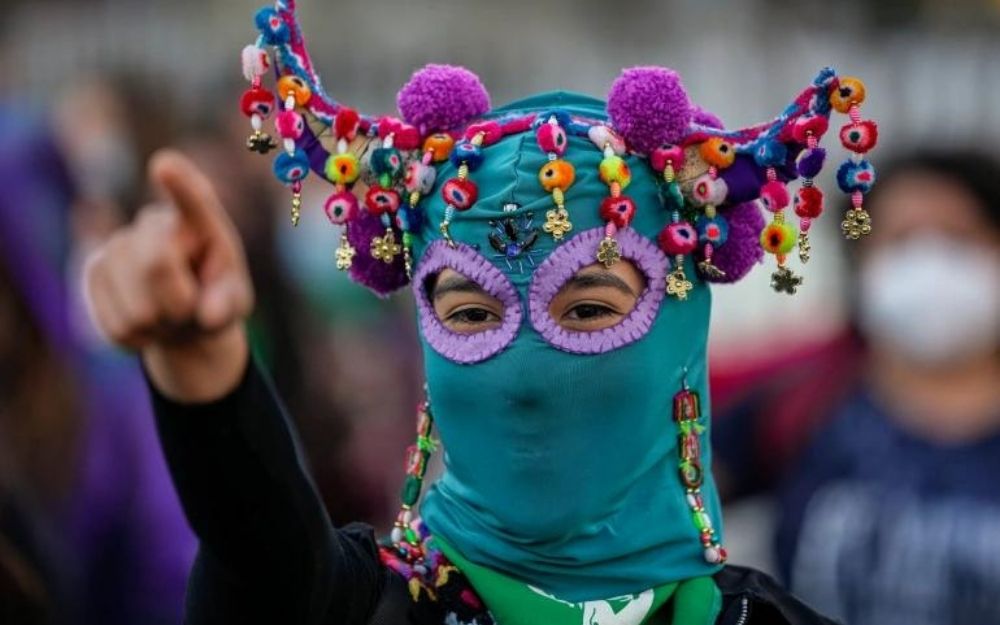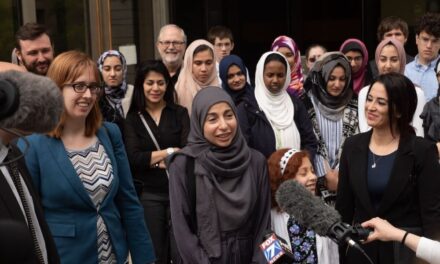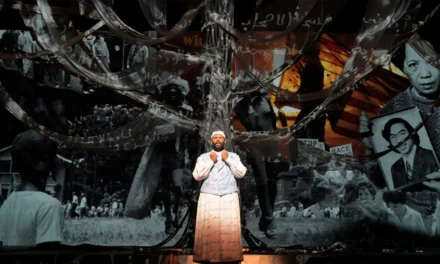Demonstrators sing the song Un violador en tu camino – or ‘A rapist in Your Path’ during a protest against gender-based violence on International Women’s Day in Santiago, Chile [Esteban Felix/AP]
As the world celebrates women, we take a look at the global day that has shaped society by highlighting issues that have affected women for many years.
What is International Women’s Day and when is it celebrated?
International Women’s Day – celebrated annually on March 8 – is a day that commemorates the social, political and economic achievements of women.
Women in different parts of the world use this day to come together to celebrate one another and rally for equal treatment and representation.
What’s the theme for International Women’s Day in 2022?
The theme for this year’s International Women’s Day is: “Gender equality today for a sustainable tomorrow.”
This year’s campaign is represented by the #BreakTheBias hashtag and calls on people to work towards a world that is equitable, inclusive, and free from bias and discrimination so the playing field is levelled for women moving forward.
“We have today the opportunity to put women and girls at the centre of our planning and action and to integrate gender perspectives into global and national laws and policies,” Sima Bahous, executive director of UN Women, said.
How did the celebration of International Women’s Day start?
The predecessor of International Women’s Day, previously known as National Women’s Day, was first observed in the United States on February 28, 1909, at the suggestion of activist Theresa Malkiel.
The idea of an international women’s day was unheard of until 1910 during an International Socialist Women’s Conference that took place in Copenhagen, Denmark.
It was during this conference that Clara Zetkin, a German communist activist, universal suffragist and advocate of women’s rights, proposed the idea that there be a designated day for women everywhere to “press for their demands”. Her idea was met with unanimous approval from all the women present representing 17 countries.
International Women’s Day was first celebrated in Austria, Denmark, Germany and Switzerland on March 19, 1911, following the agreement at the Copenhagen conference. Russia celebrated its first International Women’s Day two years later on the last Sunday of February – February 23, 1913.
Why is International Women’s Day celebrated on March 8?
The most consequential International Women’s Day protest took place in Russia on March 8, 1917. Thousands of Russian women took to the streets of the capital, Petrograd, now known as St Petersburg, to demand the end of food shortages and World War I.
It was this International Women’s Day protest that helped prompt the start of the Russian Revolution and led to the overthrowing of the czar.
This holiday has been celebrated on March 8 ever since, as it took place on February 23, 1917, on the then-used Julian calendar (the equivalent of March 8 on the Gregorian calendar).
When was International Women’s Day recognised worldwide?
The United Nations celebrated International Women’s Day for the first time in 1975.
According to Women Watch, the UN General Assembly cited two reasons for deciding to observe the celebration of women’s day: the first is to recognise the fact that securing peace and social progress and the full enjoyment of human rights and fundamental freedoms require the active participation, equality and development of women.
The second is to acknowledge the contribution of women to the strengthening of international peace and security.
What are people saying today?
People and organisations have taken to social media to mark the day.
The UN called for an “equal and sustainable future”.
Rashid Abdi, Horn of Africa analyst and security policy expert, remembered the women in the war-torn Tigray region.
Keir Starmer, leader of the UK Labour Party, underlined the struggles of Ukrainian women and showed support for their perseverance.
A socio-spiritual organisation commemorated International Women’s Day by highlighting the important role women play in society.
Abdul Qahar Balkhi, foreign ministry spokesperson for the Islamic Emirate of Afghanistan, pledged the country’s commitment to addressing the difficulties Afghan women face.
Esteban Felix/AP














